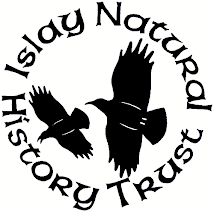I think I may have chosen well looking at the weather - an indoor rAmble this week!

Well be sure to have a gander along a beach before hand and collect up some interesting shells and beachcombing finds of mystery and bring them along. Our seashell identification workshop this Sunday will aim to give you hints and tips on how to identify your beach treasures. There will be an array of specimens to compare against, I have collected shells from all of Islay's beaches and have amalgamated records of some 134 species so whether large or small I can help with identification.
There are some interesting stories behind some of the species and what they get up to when living.
Here are some good places to go looking:
Uiskentuie Strand - for big clam species - occasional piddocks and some smaller gastrapods
Black Rock can throw up some interesting smaller specimens, particularly after this recent storm
Big Strand, nr. Knockangle Point - the currents collect a lot of interesting species, Cowries and other sea-snails.
 |
| Pheasant Shell |
Kilnaughton - look for small and miniature species, and some not found regularly elsewhere
Killinallan and Ardnave - can have a whole range of different species, although you may have to walk further between finds.
Gartbreck - a whole array of medium to small sea-snails gather and wash ashore with the currents, many rarer and more fragile, so a great place for more unusual specimens.
 |
| Goose Barnacle |
 |
| Sea Squirt |
Any west coast beach after the last days winds may throw up Goose Barnacles on floating logs and 'By-the-wind Sailors' at this time of year.
Come and join me on Sunday, only £2 for INHT members; £4 non-members
Fiona MacGillivray









































